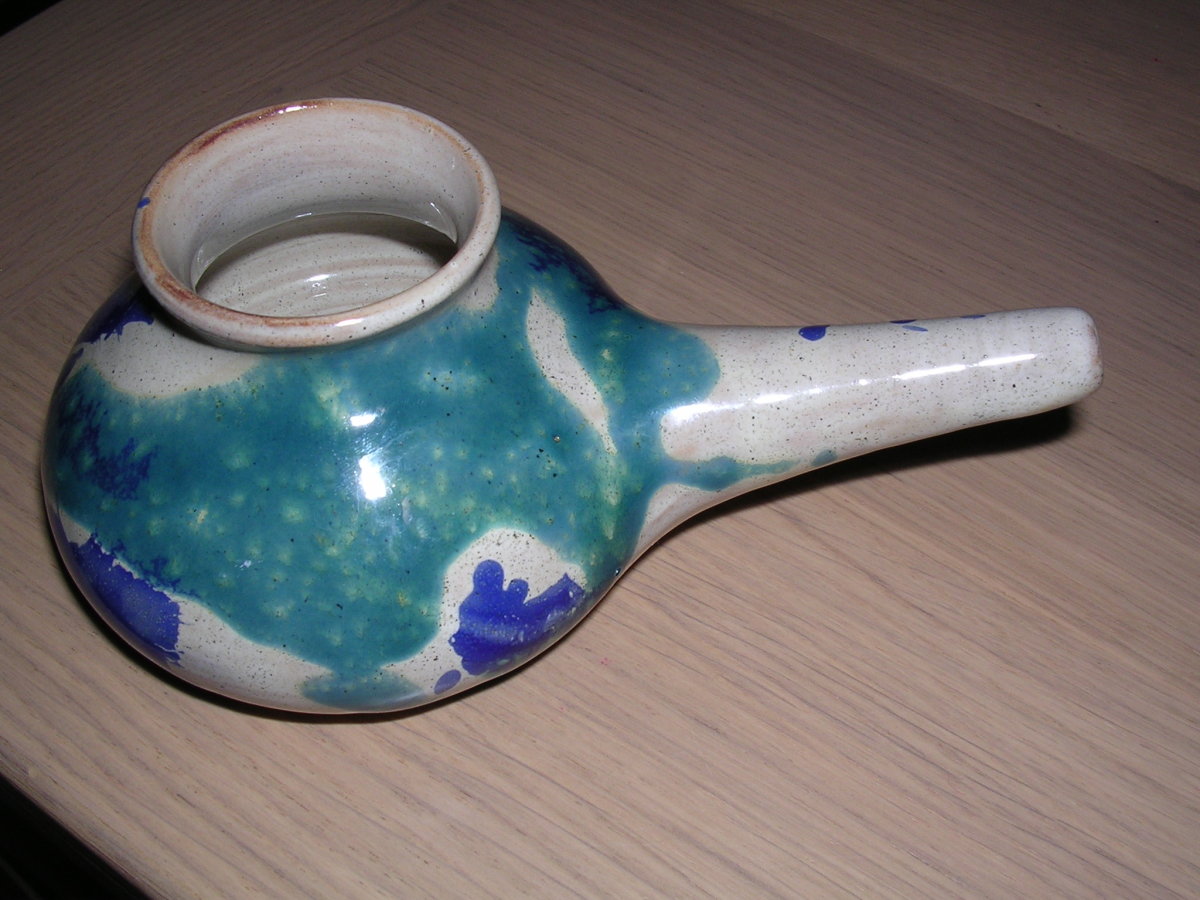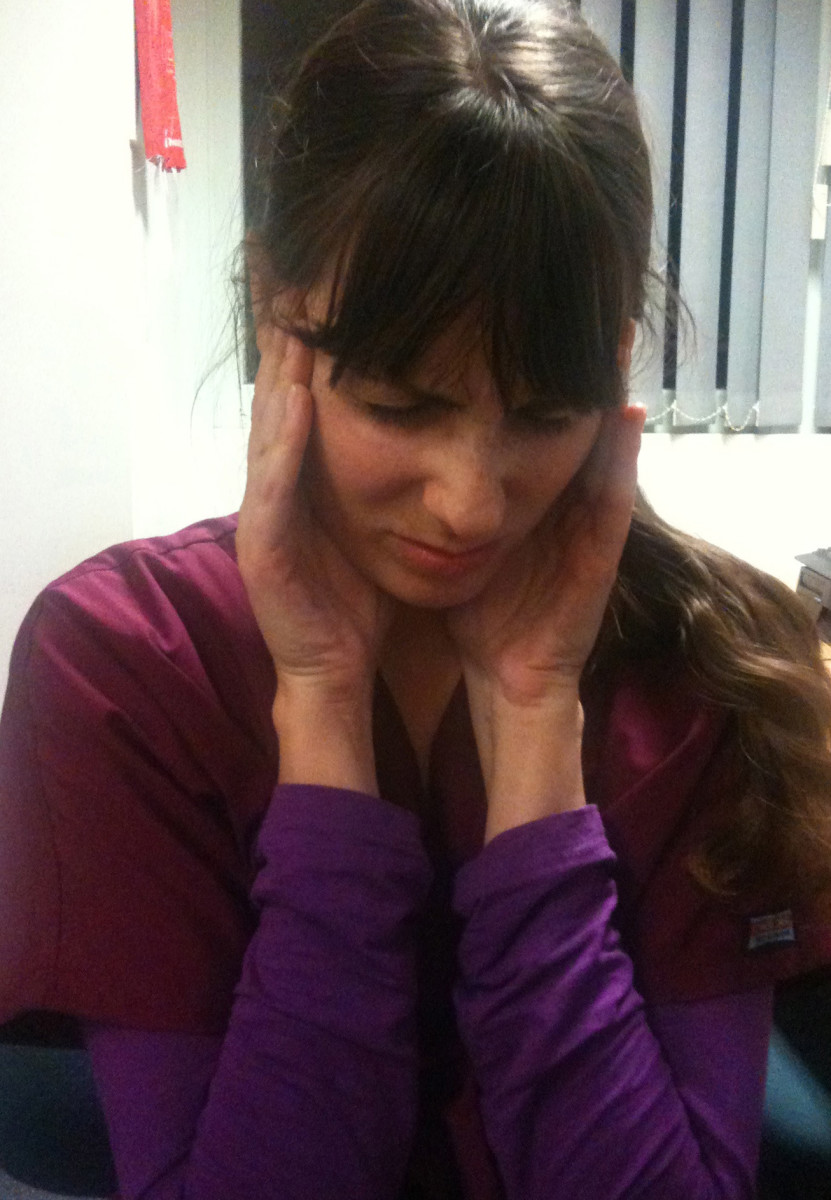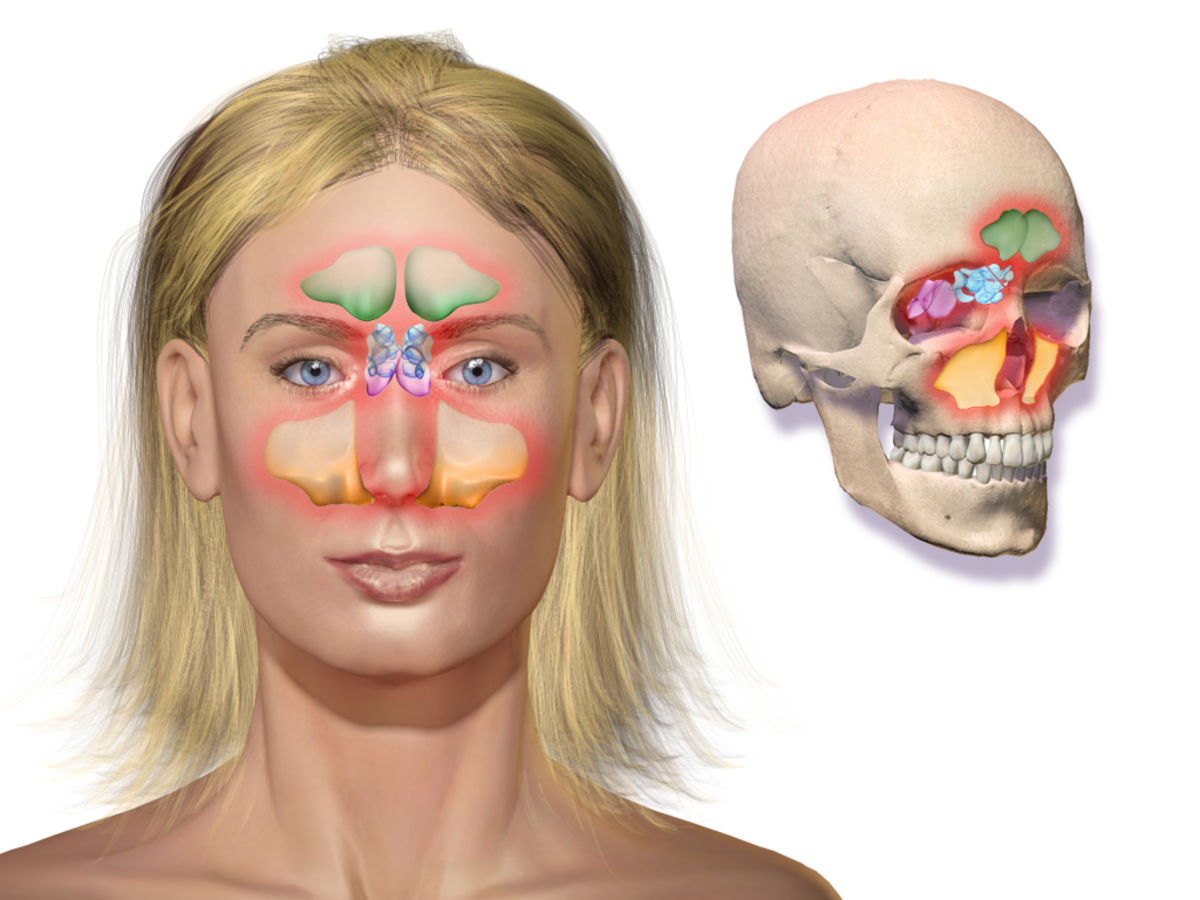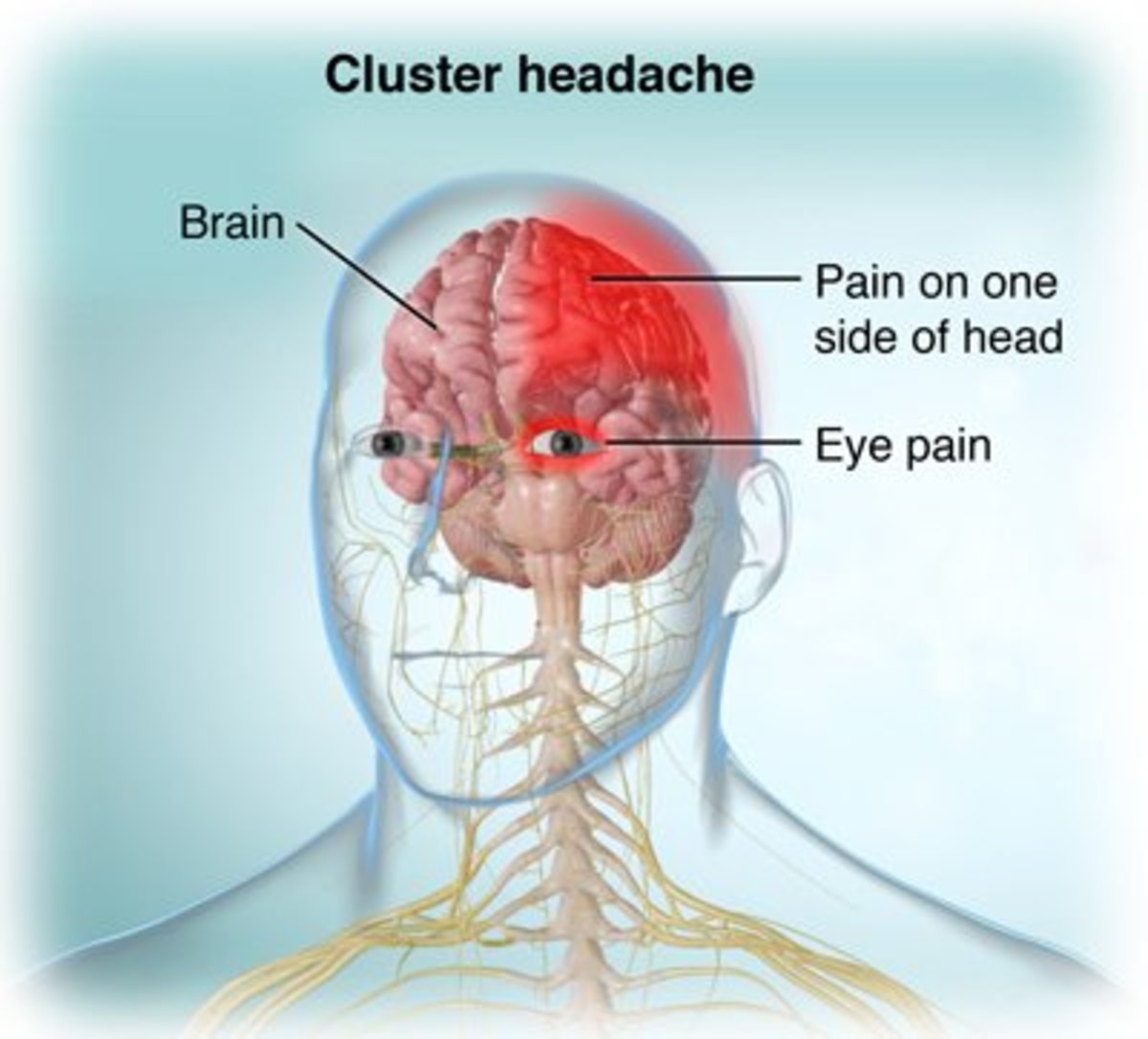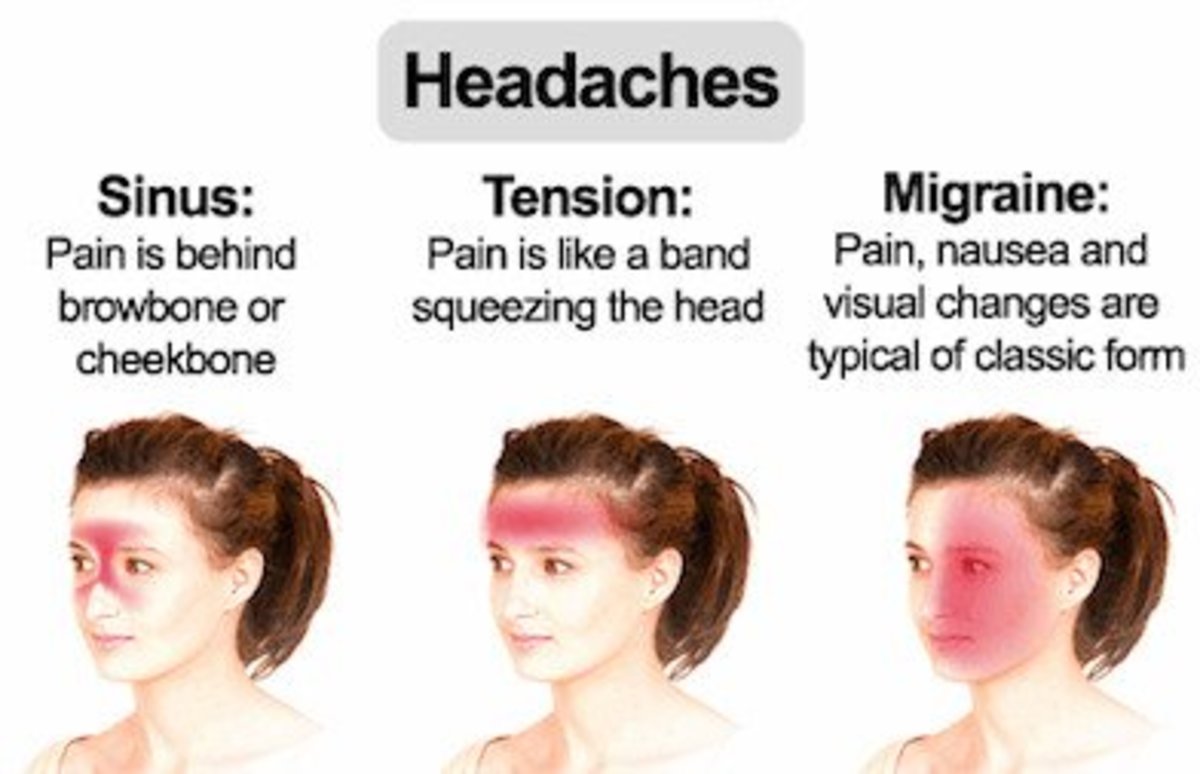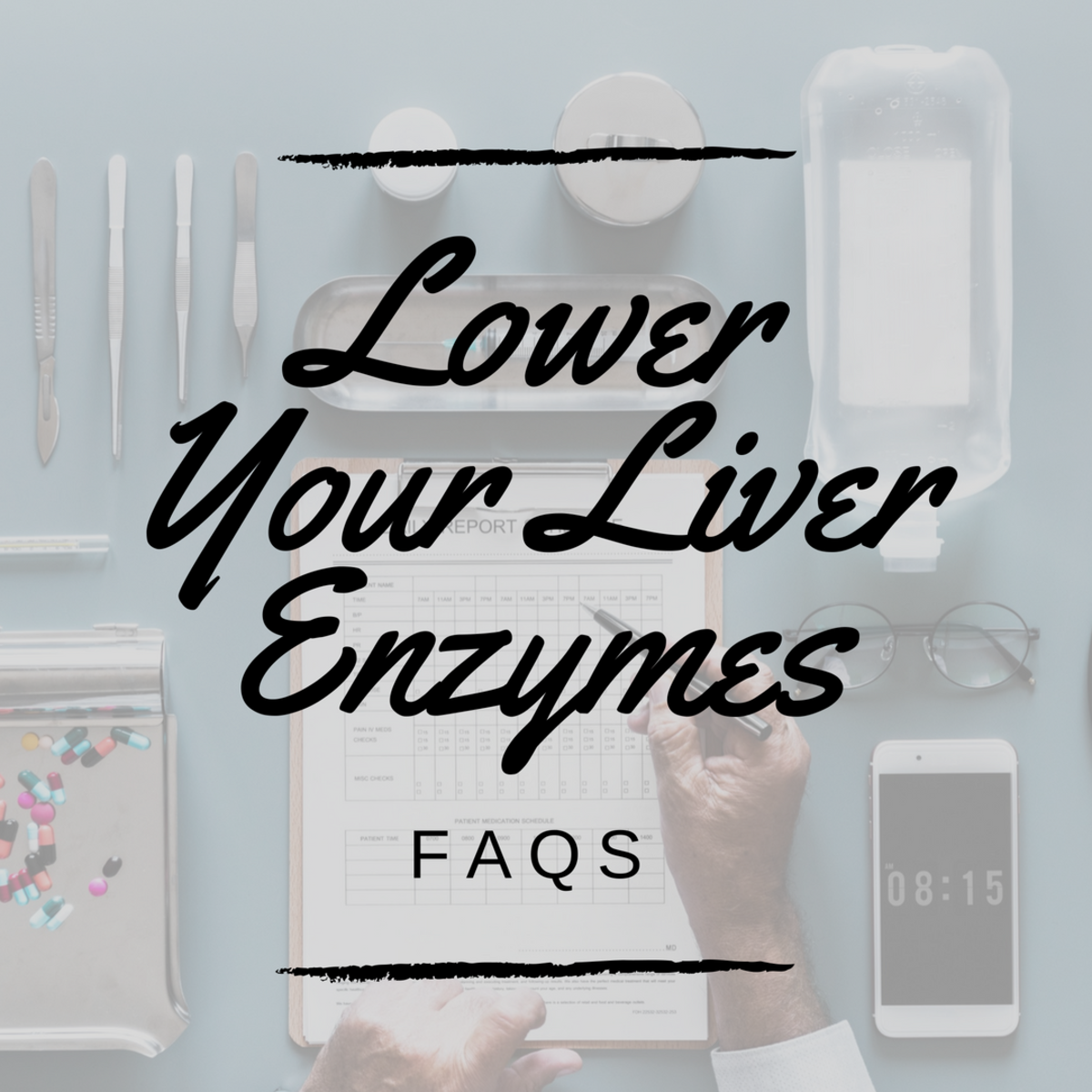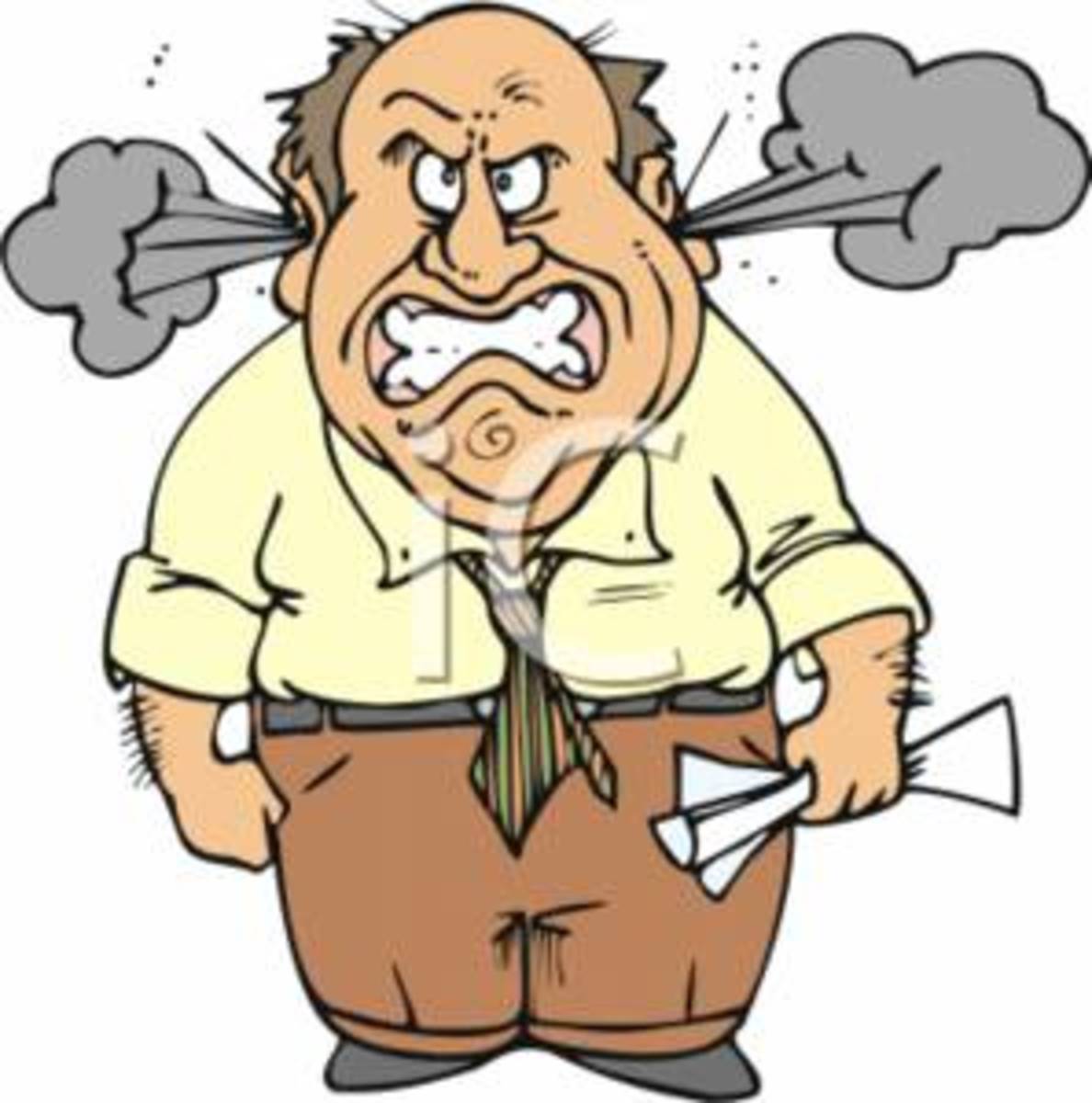- HubPages»
- Health»
- Personal Health Information & Self-Help»
- Health Self-Help
Different Types of Headaches
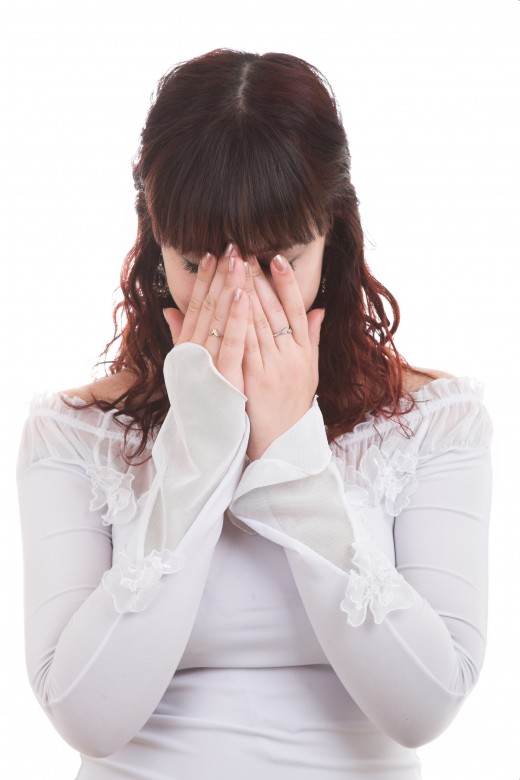
A headache is the most commonly reported medical complaint with a throbbing pain in the head. The pain from a headache can be in many different areas of the head, many people suffer from a headache located in the back of head. Different types of headaches develop from various culprits, and can last anywhere from thirty minutes to days, or even weeks.
A headache may be on the right temple, left temple, behind the eye or back of the head. The pain may be sharp, dull, or even a throbbing pain. This kind of pain gives a pulsating headache, like intense banging.
It is rare, but a headache could be a warning sign of a more serious health problem. However, statistics show that 90% of headaches will not be related to other health issues. Referred to as a primary headache, and may simply be from a dysfunction. In other words, the pain sensitivity areas in the head, the nerves, blood vessels, and yes, even the muscles can be chemically induced with over activity in the brain.
Different types of headaches :
Headache Types:
- Left Temple Headache
- Right Temple Headache
- Back of the Head Headache
- Constant Dull Headache
Some of the causes for headaches are:
- Tension Headache
- Stress Headaches
- Migraine Headaches
- Cluster Headaches
Tension Headache
The tension headache is the most common headache type of all. It is still under research studies, which fall in the category of brain research. This field of study is far from being completely understood, for that matter just understood. They do know that the pain associated with a tension headache is usually mild to moderate on a scale of 1-10. Others describe this type of headache to feel as though there has been a very tight wrap around their head and causing a tension headache.
This type of headache can last anywhere from thirty minutes up to a week, and it's possible that it could last even longer.
Migraine Headaches
This is another type of headache you can get, it commonly causes server pain in the back of head, however can be painful in different areas. They are referred to as chronic, that’s because the pain of a migraine can debilitate a person, making their entire body feel weak, chilled, and nauseated. This type of headache can last hours, days, and maybe weeks. The pain level is noted to be between moderate to severe. You can feel the pulsating in your head; you feel the pain with each pulsation. It's a throbbing, pounding, jabbing kind of pain.
Sometimes, some people know when they are about to have a migraine headache come on. There are many people who actually get warning signs. Their extra sensory perception may realize these signs as having flashes of light, and blind spots may appear.
There may be a tingling sensation running through their arms or legs. A migraine headache can make a person feel sick to their stomach. They may not be able to stand the light, and the littlest sound may prove to be too much for them. There are many people that seem to even have issues with smells when they are having a migraine.
Cluster Headaches
Cluster headaches are another type of headache that rates up there with migraines. The pain can make a person experience excruciating pain, which is centralized around the eyes. It comes on suddenly, and there is hardly and warning to let you know. This type of headache seems to have a pattern, after the onset the pain hits you repeatedly. These headaches can go on for months, causing so much pain that a person can go into remission by the time the headache has come to a halt.
Were you aware of what a rebound headache was?
Rebound Headaches
Not many people know that there is a headache called “rebound headaches”. The rebound headache is caused by the same medications we are taking for our headaches. We are supposed to take headache medications occasionally, now you know the reason for that. The medications you purchase over the counter for headaches states on the label to use for a matter of days, after that to seek medical attention if you are still having headaches. Taking these medicines longer can trigger an overdose, and this can cause you to get a different type of headache, which is referred to as rebound headaches.
Your body gets comfortable with the medication if taken very regular, and then the body goes through something similar to withdrawals. On the same lines as an alcoholic, if they go for a period of time without having a drink, they can go through withdrawals.
Tylenol and Acetaminophen can contribute to rebound headaches; this is due to the high strength of the active ingredients.
Lower risks medications for headaches :
- Ibuprofen
- Advil
- Motrin
- Naproxen
- Aleve
Over the counter medications that contain caffeine :
- Aspirin
- Acetaminophen
- Excedrin

Home Remedies for Headaches: Tension Headaches
- Messaging your head/forehead
- Using hot and cold packs
- Warm showers
- Plenty of quite time
- Plenty of rest
- Sit or lay in a darkened room
- Take a low dose of aspirin (adults only), Acetaminophen or Tylenol, or another one from the paragraph above
- Moderate amounts of exercise
- Use good posture
- Rub peppermint oil on your forehead and temple (only if you are not allergic to peppermint)
- Rub Vicks salve on your temple and forehead (being careful not to get into your eyes).
Home Remedies for Headaches: Migraine Headaches:
- Sometimes drinking a strong cup of coffee will help to reduce the pain of a migraine, and sometimes it will eliminate the migraine altogether.
- Rest and relax in a darkened room.
- At the first sign of a migraine coming on, take a low dose of headache medication. Carefully choose the medication you are going to take, as I previously mentioned some headache medications can actually cause you to get a headache. And If you already have a headache when this happens, it will only make the headache worse.
- Since yoga and meditation help to relax the muscles, yoga can also help to relieve a migraine headache.

Home Remedies for Headaches: Cluster Headaches:
Sometimes a change in a person’s regular sleeping habits can cause them to get headaches. Should you feel this may be the cause of your headaches, you could try sleeping at scheduled intervals. Give your new sleeping schedule several days, and if your headaches are brought on from a change in your sleeping patterns this should bring it to an end.
Note: Anyone who feels as though they are about to have a headache come on should avoid drinking alcoholic beverages. The alcohol is only going to bring it on faster, and make it a lot worse.
Since substances of a volatile nature can trigger headaches in the first place, it would be best to avoid these situations. This simply means to stay away from things like:
- Solvents
- Gasoline
- Oil Based Paints
- This includes any household cleaning products that you may have noticed/or may now notice may be triggering your headaches.
- High altitudes can also trigger a headache. If you feel this could be happening to you, then it would be best to avoid any high levels.
- Anyone that has a headache quit often should refrain from smoking cigarettes. If this is a possibility in your case, then you should also stay away from any other types of smoke as well.
- Smoked and process meats, among other things that contain “Nitrates” and “Nitrate Sodium” can also trigger a headache. You may want to avoid these things.
- There are some medications which contain “Nitrates”, “Nitroglycerin” is one of these. If you have headaches on a regular basis, and you're taking a prescription medication for “Nitroglycerin” talk to your doctor about the possibility of this medication causing your headaches. Otherwise, to prevent yourself from having these headaches, avoid “Nitrates”.
Common triggers :
- Caffeine
- Red wine
- Alcoholic beverages
- Food that has been pickled or marinated
- Sodium nitrate
- Monosodium glutamate
- Stress
- Fatigue
- Skipping meals
- Having too much stress on the eyes
- Poor posture
- Excessive noise
Alternative Supplements
- The herb feverfew and butterbur is known to reduce, and possibility preventing a headache. (never take when you are pregnant).
- High doses of Riboflavin (vitamin B-2) may help ease the symptoms of your headache.
- The use of the supplement "Magnesium” has helped many others with migraine headaches.
Note: In no way are the “Home Remedies” in this article meant to take the place of getting medical attention. To the contrary, if your headache should persist more than two or three days, or should the pain from your headache seem to be getting worse; seek medical attention immediately!
Question for Readers:
- What are some methods you have used to help relief the pain of a headache?
This content is accurate and true to the best of the author’s knowledge and is not meant to substitute for formal and individualized advice from a qualified professional.
© 2013 Billy Haynes

